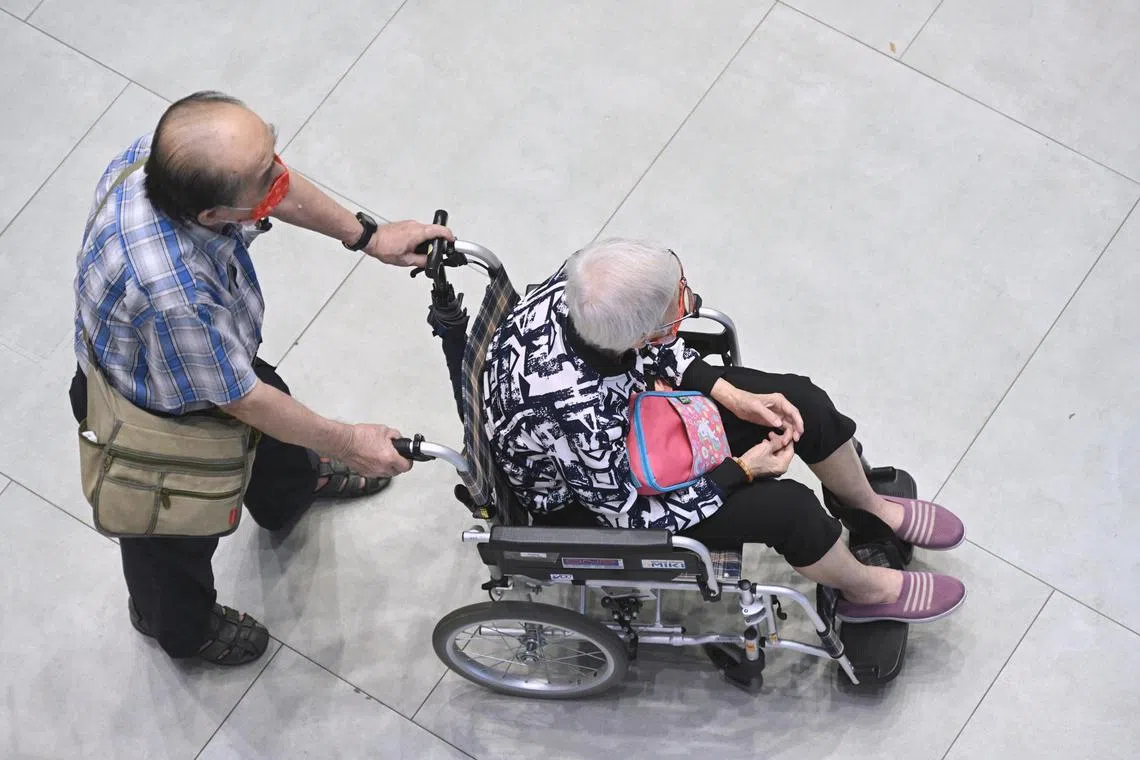Budget 2023: ElderCare Fund gets $500m, MediFund $1.5b to help with medical expenses
Sign up now: Get ST's newsletters delivered to your inbox

The MediFund will receive a $1.5 billion top-up to help those facing difficulties footing their medical bills.
ST PHOTO: DESMOND WEE
SINGAPORE - More lower-income seniors can get help with their medical expenses with a top-up of $500 million to the ElderCare Fund. This will support seniors who need home-based, centre-based or institutional care, with means-tested subsidies.
The fund provides operating subsidies for intermediate and long-term care providers, such as nursing homes run by volunteer welfare organisations.
In addition, the Medical Endowment Fund (MediFund) will receive a $1.5 billion top-up to help those facing difficulties footing their medical bills, even after government subsidies, and insurance and MediSave deductions.
More targeted assistance for the elderly and children are provided through MediFund Silver and Junior respectively.
The move comes as the population ages, with one in four Singaporeans aged 65 and above by 2030, up from one in six today, Deputy Prime Minister and Finance Minister Lawrence Wong said in his Budget 2023 statement on Tuesday. Smaller families will mean an increased burden of care for those caring for seniors, he said.
The ElderCare Fund and MediFund are government endowment funds, in which a sum of capital money is set aside and used to generate income to finance the programmes on an ongoing basis.
MediFund provided Singaporeans with more than $164 million to help them pay medical bills in financial year (FY) 2021 from April 2021 to March 2022, $7.2 million more than in the financial year before. There were more than 1.2 million successful applications, an increase of 7.4 per cent from the 1.15 million in FY 2020.
Mr Wong also highlighted the focus on preventative care as a “first line of defence”, enabling seniors to age while enjoying better health in their communities rather than in institutions.
“While nursing homes are suitable for the elderly with high care needs and little to no family support, we cannot rely on this as the mainstream solution,” he said.
“In fact, many seniors themselves prefer to be cared for in the community and grow old in an environment that is familiar to them, surrounded by their loved ones.”
“And that is why our priority is to support seniors to take care of their own health, including by remaining physically and mentally active, and staying engaged in their communities,” he added.
Key to this goal is the Healthier SG initiative
The Government is also studying ways to improve support options within the community, outside of hospitals and clinics, as part of the Forward Singapore exercise.
This includes reviewing the operating model of active ageing centres and better coordinating aged care providers, in what Mr Wong called a “highly fragmented” sector.
There are 119 active ageing centres in the Republic, and there are plans to increase this number to 220 islandwide by 2025. These centres provide seniors in the community with recreational activities, social support and basic information, as well as referral to care services.
“We are considering what more we can do to enhance retirement adequacy in our Forward Singapore deliberations,” he said.


